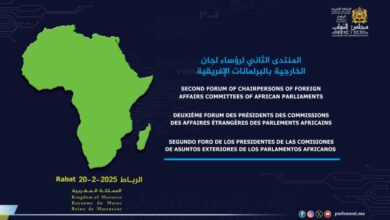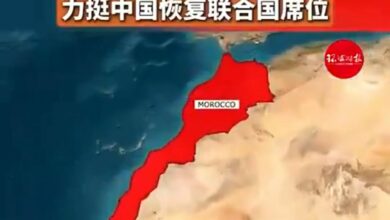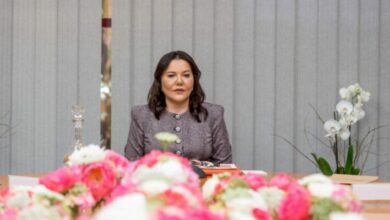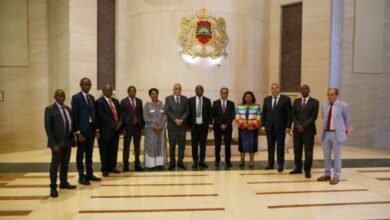Anticipated Visit of Syrian President to Morocco: A Historic Step Toward Strengthening Relations and Official Recognition of Morocco’s Sovereignty over the Sahara
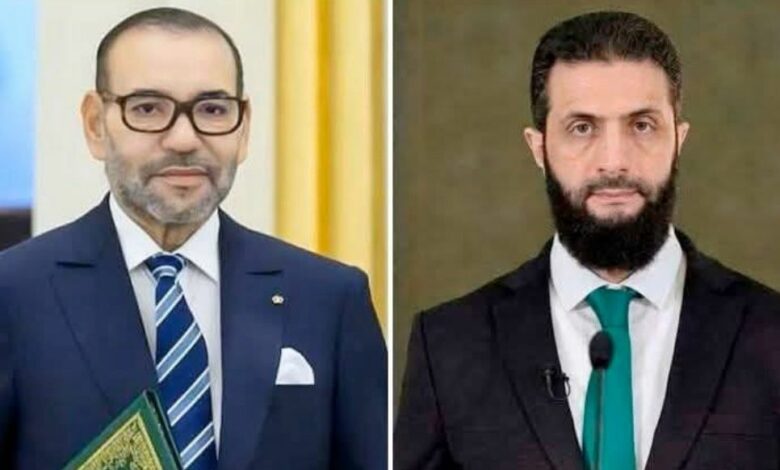
ALDAR/
The capital city of Rabat is preparing to host an official visit by Syrian President Ahmad Al-Shara to the Kingdom of Morocco—a historic step aimed at turning the page on old disputes and opening a new chapter in bilateral relations between the two countries after years of stagnation and severed ties.
According to multiple sources, the visit is expected to carry significant political and strategic dimensions, including the signing of several agreements that would enhance bilateral cooperation on various levels. Most notably, the Syrian Arab Republic is expected to announce its full recognition of Morocco’s sovereignty over its southern provinces—a position that is likely to be warmly welcomed by Rabat.
This striking shift in Syria’s foreign policy comes within the framework of what has come to be known as the “New Syria,” where the current leadership under Ahmad Al-Shara seeks to reposition the country within the Arab world and engage in a regional dynamic aimed at resolving crises and opening channels of communication with Arab nations. It reflects a comprehensive reassessment of previous stances.
This anticipated visit will be the first of its kind since diplomatic ties were cut between the two nations in the wake of tensions surrounding the Syrian crisis and the subsequent divergent political alignments. During that period, Morocco maintained a balanced position, supporting the legitimate rights of the Syrian people without engaging in hostile policies or proxy wars—an approach that has left a positive impression among many Syrians.
In this context, numerous Syrian voices have expressed great appreciation for Morocco’s stance, especially as the Kingdom was among the few countries that opened its doors to Syrian refugees without imposing restrictions. Morocco treated them with rare humanitarian dignity, which has earned it a special place in the hearts of many Syrian families.
Observers believe that this visit could mark the true beginning of rebuilding trust between Damascus and Rabat, potentially ushering in a new phase of political, economic, and cultural cooperation, particularly given the complementary potential the two nations possess in various fields.
The visit is expected to culminate in a high-level meeting between President Al-Shara and King Mohammed VI—a diplomatic event that will attract considerable attention across the region, especially as it coincides with significant transformations in the relationships among several Arab countries, all seeking to foster mutual understandings in the face of current regional and global challenges.
Should the planned agreements be signed—especially Syria’s recognition of Moroccan sovereignty over the Sahara—it would constitute a major diplomatic win for Rabat. It would also reflect a substantial shift in Syria’s official position, moving away from the rigid and closed-off policies of the past.
Many analysts affirm that the strengthening of Moroccan-Syrian relations at this particular juncture could contribute to establishing a new climate of intra-Arab cooperation, based on mutual respect and non-interference in internal affairs, while striving to achieve the economic and cultural integration desired by the peoples of the region.
As Damascus looks to reclaim its regional role and escape the international isolation imposed by years of war, Rabat hopes to find in the “New Syria” a trustworthy partner who supports Morocco’s territorial integrity and contributes to building a shared future grounded in mutual interests.
The ultimate challenge remains whether both sides can transform this diplomatic step into a lasting and stable path—one that not only restores Moroccan-Syrian relations to their former state but propels them toward broader horizons of cooperation and partnership.

